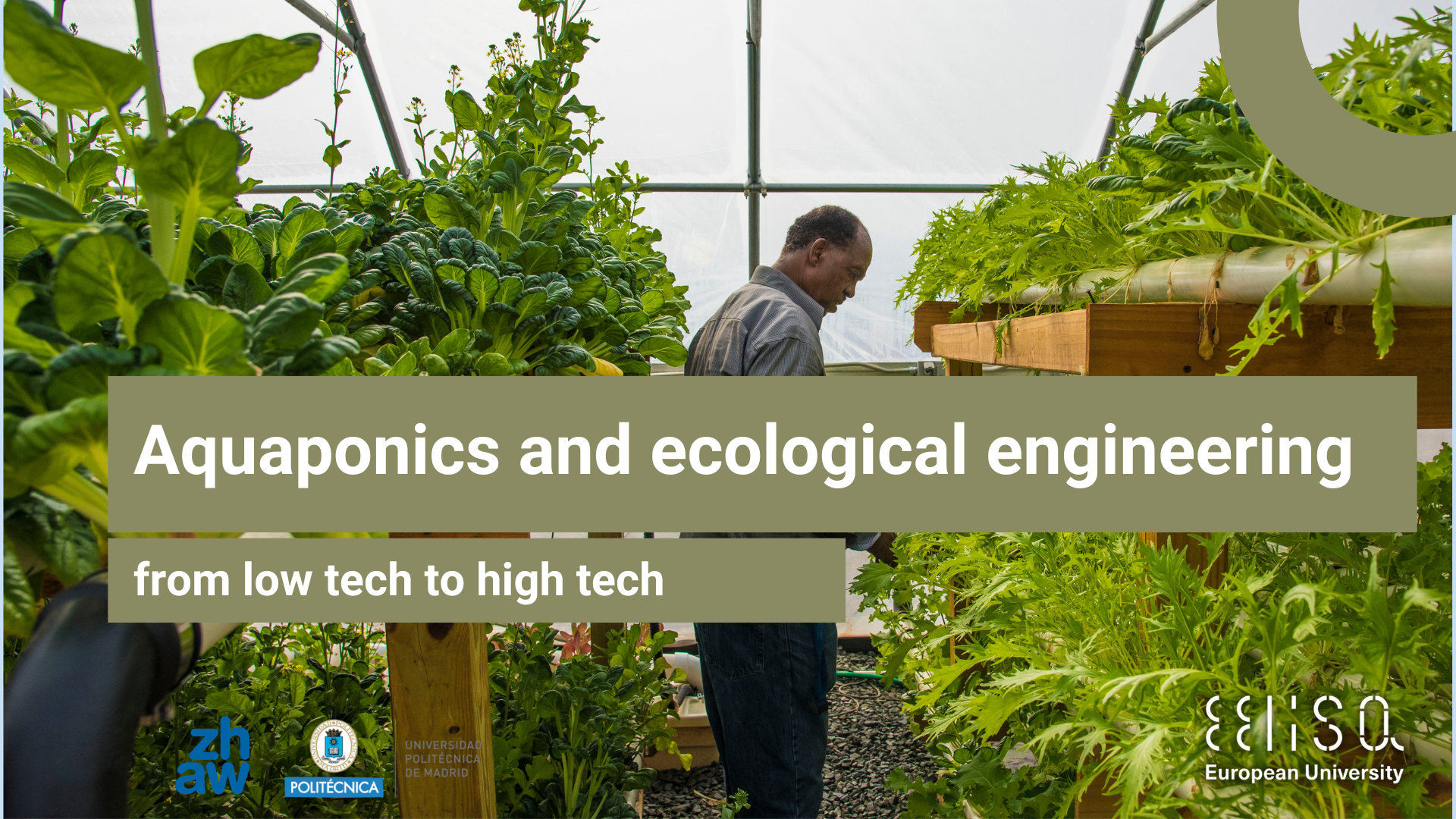
Aquaponics and ecological engineering: from low tech to high tech
Aquaponics, the simultaneous culture of fish (aquaculture) and plants without soil (hydroponics), has been proposed as one of the 10 technologies which could change our lives, by the Scientific Foresight Unit (STOA) of the European Parliament. It has proven to be quite sustainable and can be considered as an example of ecological engineering, with mutual benefits for humans and nature. The design of aquaponic systems around the world vary widely however, from quite low tech “backyard” aquaponics to high tech production systems with sophisticated monitoring. In this EELISA activity, specialists from ecological engineering and aquaponics discuss aspects related to design, education, technology transfer and animal welfare.
In this context, UPM and ZHAW are joining forces to organise the first joint activity since ZHAW was welcomed in EELISA! A series of four talks given by experts in the field of Ecological Engineering and Aquaponics.
| 9:00-9:15 |
Welcome address Ranka Junge, ZHAW School of Life Sciences and Facility Management
|
| 9:15-9:30 | The EELISA Alliance Vision and Ambition
Sofia d’Aguiar Executive Director EELISA Office |
| 9:30-10:15 |
Introduction to Ecological Engineering Andreas Schönborn, ZHAW, Co-president of IEES International Ecological Engineering Soceity, ZHAW School of Life Sciences and Facility Management |
| 10:15-11:00 |
Aquaponics as a nature-based solution Sarah Milliken, Research Fellow, Architecture and Landscape architecture, University of Greenwich
|
| 11:00-11:30 | Break |
| 11:30-12:15 |
Divergent evolution of technologies, low tech versus high tech (why low-tech should not be low-knowledge) Ranka Junge, ZHAW School of Life Sciences and Facility Management |
| 12:15-13:00 |
Enriching environments for fish: the goldilocks effect and aquaponics Morris Villarroel, Professor of Aquaculture, Technical University of Madrid (UPM) |
WHEN
20th of June 2023, from 09:00 to 13:00 CEST
WHERE
Onsite at ZHAW (Grüntal Campus) and Online via zoom
